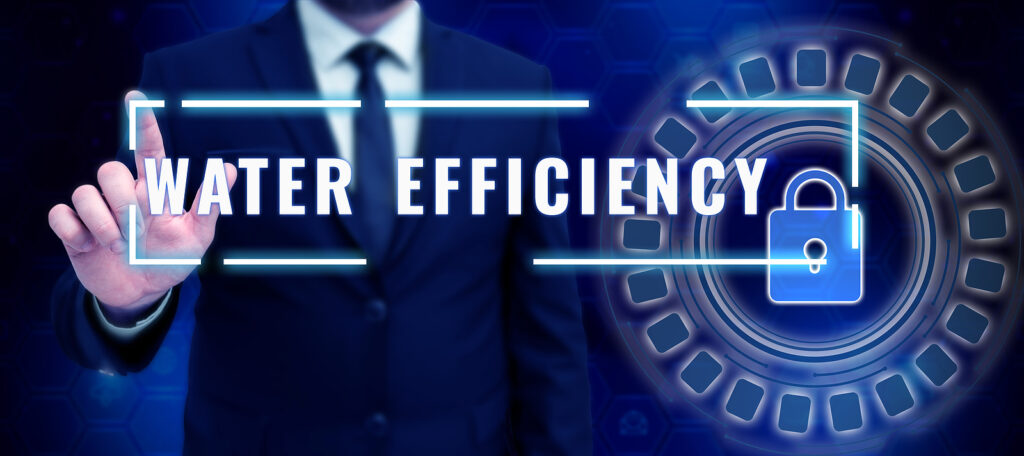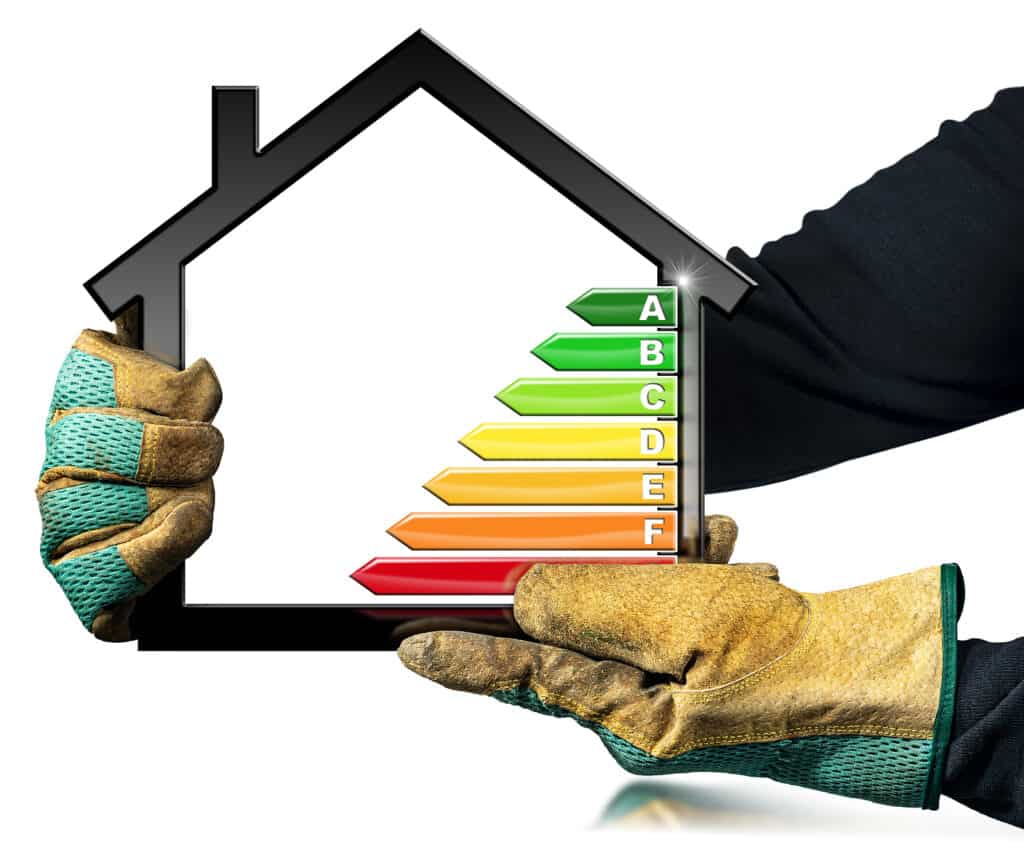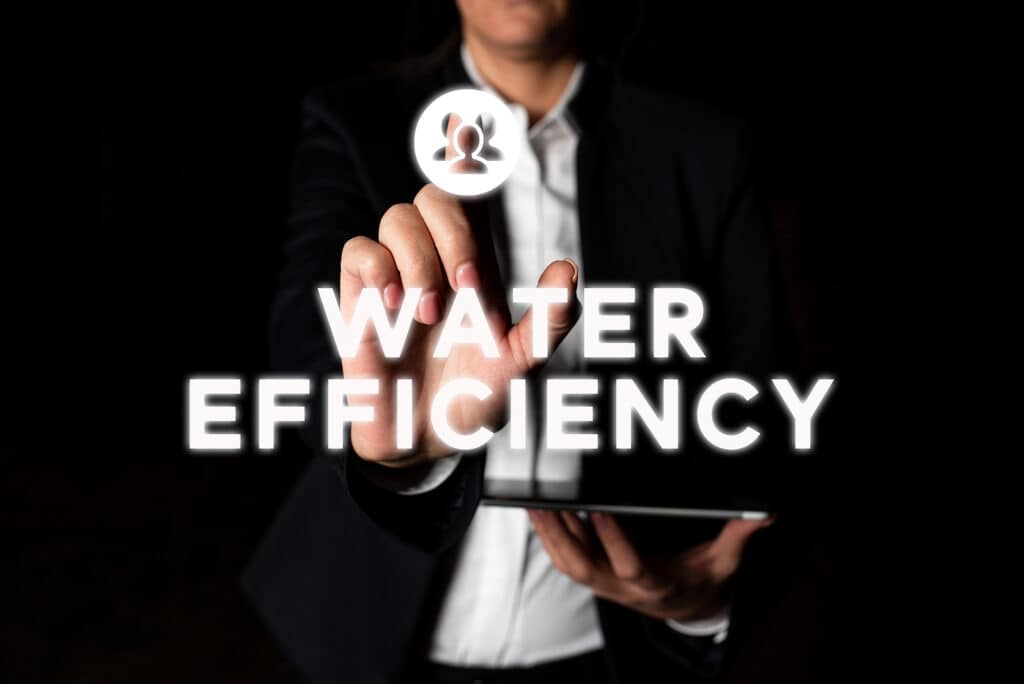The Connection Between Water and Energy Efficiency: How to Save Both
When it comes to environmental sustainability, water and energy are often seen as separate issues. But the truth is, they are deeply interconnected. In fact, the way we use water and energy has a significant impact on the environment and our economy.
Water and energy are used together in various ways, including the production and transportation of goods, the generation of electricity, and the heating and cooling of buildings. In this article, we will explore the connection between water and energy efficiency and how we can save both.
Understanding the Energy-Water Nexus
The water-energy nexus is the relationship between water and energy. This concept recognizes that water is required for energy production, while energy is required for water treatment and distribution.
Water is used in the production of energy in many ways. For example, water is required to cool power plants, and hydroelectric power plants generate electricity by harnessing the power of moving water. In addition, the production of biofuels, which are considered renewable energy source, requires large amounts of water.
Conversely, energy is required to treat and distribute water. Water treatment facilities use energy to remove impurities from water while pumping stations use energy to distribute water to homes and businesses.
The water-energy nexus also has economic implications. Energy prices can affect the cost of water treatment and distribution, while water prices can affect the cost of energy production. As a result, the availability and cost of water and energy are closely intertwined.
The Importance of Water-Energy Efficiency
As the world faces ongoing challenges related to population growth and the escalating impact of climate change on vital resources, the importance of employing water and energy efficiently has become paramount. By understanding the multifaceted benefits of conserving these indispensable resources, we can collectively work towards a sustainable future.
Conserving Essential Resources
Water and energy are essential for the survival and progress of society. As the global population continues to increase, and climate change exacerbates water scarcity and energy stresses, it becomes imperative to adopt responsible practices in their utilization. By using water and energy judiciously, we can safeguard these finite resources for present and future generations, ensuring that they remain available for various critical needs, such as agriculture, industry, and domestic use.
Economic Savings
Apart from the environmental benefits, embracing water and energy efficiency also translates into significant economic advantages. By optimizing water consumption and utilizing energy-efficient technologies, businesses, households, and industries can substantially reduce their operational costs. For instance, the US Environmental Protection Agency (EPA) estimates that American families can save an average of $380 annually on utility bills by transitioning to energy-efficient appliances. These cost savings not only benefit individuals but also promote economic stability on a larger scale.
Reducing Carbon Footprint
Addressing environmental concerns, water, and energy efficiency play a pivotal role in mitigating climate change. Energy production is a major contributor to greenhouse gas emissions, exacerbating global warming and its associated consequences. By implementing energy-efficient practices and technologies, we can substantially lower energy demands, leading to reduced carbon emissions. This proactive approach aids in combatting climate change, making our efforts a significant step towards a more sustainable and environmentally conscious society.

Benefits of Water and Energy Efficiency
The adoption of water and energy efficiency practices offers a multitude of significant advantages, encompassing various aspects of environmental sustainability and economic well-being. Delving into the details, we find that these practices yield substantial benefits:
Reducing Greenhouse Gas Emissions
Emphasizing water and energy efficiency can lead to a remarkable reduction in greenhouse gas emissions. By implementing more efficient water pumping and treatment methods, the energy consumption associated with these processes can be minimized. Consequently, this reduction in energy demand translates to lower carbon dioxide and other greenhouse gas emissions, contributing positively to global efforts to combat climate change and limit its adverse effects.
Cost Savings
Energy efficiency in water and wastewater facilities measures hold the potential for substantial cost savings for individuals, businesses, and industries. By optimizing water usage and employing energy-efficient technologies, utility bills can be significantly reduced. This financial relief not only benefits households but also offers businesses a competitive advantage, enhancing their overall economic stability and potential for growth.
Conservation of Natural Resources
The preservation of valuable natural resources lies at the core of water and energy efficiency initiatives. By using water more judiciously, we can help conserve this precious resource, especially in regions facing water scarcity. Likewise, efficient energy practices lead to a reduced reliance on fossil fuels, such as coal, oil, and natural gas, helping to preserve these finite resources and reduce the environmental impact associated with their extraction and use.
Enhancing Infrastructure Resilience
Water and energy efficiency also play a crucial role in ensuring the resilience of infrastructure. By reducing water consumption and optimizing energy use, the strain on critical systems such as water treatment plants and power grids can be alleviated. This, in turn, leads to a more reliable and robust infrastructure, capable of withstanding various environmental challenges and ensuring continuous service delivery to communities.
Promoting Technological Innovation
Embracing water and energy efficiency fosters a climate of innovation and technological advancement. As businesses and industries seek innovative solutions to optimize resource use, there is an increased drive to develop and implement cutting-edge technologies and practices. This innovation not only benefits the environment but also drives economic growth and job creation in the burgeoning green technology sector.
Empowering Sustainable Development
Water and energy efficiency align with the principles of sustainable development. By utilizing resources responsibly and minimizing waste, we can work towards meeting the needs of the present without compromising the ability of future generations to meet their own needs. Embracing these efficient practices forms an integral part of building a sustainable and resilient society for the long term.
How to Save Water and Energy
Conserving water and energy resources is essential for creating a sustainable and environmentally responsible future. There is a wide array of effective strategies that individuals, communities, industries, and agriculture can implement to save water and energy. Let's explore these strategies in detail:
Embrace Water-Efficient Appliances
Opting for water-efficient appliances is a practical step towards reducing water consumption. Installing low-flow toilets and showerheads can significantly decrease water usage without compromising comfort or functionality. Water-efficient washing machines and dishwashers also play a vital role in minimizing water waste during everyday chores.
Address Leaks and Fixtures
Detecting and repairing leaks in pipes and fixtures is crucial for preventing water waste. A small, undetected leak can lead to significant water loss over time. Regularly inspecting plumbing systems and promptly fixing leaks can help conserve water resources.
Utilize Renewable Energy Sources
Transitioning to renewable energy sources, such as solar and wind power, has a direct impact on reducing the energy required for water production and transportation. By relying on clean and sustainable energy options, we can mitigate the environmental impact associated with conventional energy production.
Enhance Insulation
Improving insulation in homes and buildings is a proactive approach to reducing energy consumption. Well-insulated structures retain heat during cold weather and maintain cooler temperatures during hot weather, thereby reducing the need for excessive heating and cooling.
Engage in Water Conservation Practices
Simple daily habits can significantly contribute to water conservation. Turning off the faucet while brushing teeth, fixing dripping taps, and taking shorter showers are easy but impactful practices that collectively reduce water usage.
Adopt Energy-Efficient Lighting
Replacing traditional incandescent bulbs with energy-efficient lighting, such as LED bulbs, can substantially decrease energy consumption. LED bulbs consume less energy, last longer, and emit less heat, making them an eco-friendly choice.
Upgrade HVAC Systems
Upgrading heating, ventilation, and air conditioning (HVAC) systems can lead to energy savings. High-efficiency HVAC units, smart thermostats, and regular maintenance ensure optimal energy usage and contribute to reduced energy consumption.
Implement Rainwater Harvesting Systems
Installing rainwater harvesting systems enables the collection and storage of rainwater for various non-potable uses, such as garden irrigation and flushing toilets. This practice eases the burden on freshwater sources for non-drinking purposes.
Harness Graywater Systems
Graywater systems recycle water from sinks, showers, and washing machines, directing it towards non-potable uses like landscape irrigation and toilet flushing. By repurposing water that would otherwise go to waste, graywater systems foster sustainable water management.
Adopt Water and Energy-Efficient Practices in Industries
Industries can play a significant role in conservation by implementing water and energy-efficient practices. Utilizing closed-loop cooling systems, optimizing water usage in production processes, and adopting energy-efficient technologies all contribute to reducing their ecological footprint.

Government Involvement
Governments play a critical role in promoting water and energy efficiency. They can implement policies, regulations, and incentives that encourage individuals and businesses to adopt sustainable practices.
For example, the United States Environmental Protection Agency (EPA) has a WaterSense program that promotes water efficiency in homes and businesses. The program provides certification for water-efficient products and educates consumers on water-saving practices.
In addition, many states and cities offer rebates and incentives for water and energy-efficient appliances, as well as for home and building improvements that increase energy efficiency.
Government policies can also encourage the adoption of renewable energy sources, such as solar and wind power. Many countries, including Germany and Denmark, have implemented policies that promote the use of renewable energy sources and have seen significant increases in renewable energy production.
Here is a video to understand water and energy efficiency
Frequently Asked Questions (FAQs) for Water and Energy Efficiency
What is water and energy efficiency?
Water and energy efficiency refers to the optimal and responsible use of water and energy resources. It involves adopting practices, technologies, and behaviors that reduce water and energy consumption while maximizing their benefits.
Why is water and energy efficiency important?
Water and energy efficiency are crucial for several reasons. They help conserve precious resources, reduce greenhouse gas emissions, save money on utility bills, promote environmental sustainability, and contribute to mitigating the impacts of climate change.
How can I save water at home?
You can save water at home by using water-efficient appliances, fixing leaks promptly, practicing water conservation habits (e.g., turning off taps while brushing teeth), and implementing water-saving technologies like rainwater harvesting and greywater systems.
What are some energy-efficient practices for homeowners?
Homeowners can improve energy efficiency by upgrading to energy-efficient lighting (e.g., LED bulbs), enhancing home insulation, installing energy-efficient HVAC systems, and utilizing renewable energy sources like solar panels.
How can businesses benefit from water and energy efficiency?
Businesses can benefit from watersmart water and energy efficiency grants through cost savings on utility bills, enhanced corporate sustainability reputation, compliance with environmental regulations, and increased competitiveness in a green-conscious market.
Are there government incentives for adopting water and energy-efficient practices?
Many governments offer incentives, grants, or tax credits to encourage individuals and businesses to adopt water and energy-efficient practices. These incentives can vary depending on the region and may include rebates for energy-efficient appliances or financial support for renewable energy installations.
How can industries optimize water and energy usage?
Industries can optimize water and energy usage by conducting energy audits, implementing process improvements, adopting closed-loop cooling systems, recycling water, and investing in energy-efficient technologies.
What are some water-efficient agricultural practices?
Agricultural water efficiency can be improved by using precision irrigation techniques, such as drip and sprinkler systems, practicing rainwater harvesting, and adopting drought-resistant crop varieties.
Can water and energy efficiency help combat climate change?
Yes, adopting water and energy-efficient practices can contribute to climate change mitigation. Reduced energy consumption leads to lower greenhouse gas emissions, while responsible water usage helps conserve water resources, which are affected by climate change-induced droughts and water scarcity.
How can I raise awareness about water and energy efficiency in my community?
You can raise awareness by organizing educational events, workshops, or seminars focused on water and energy efficiency. Additionally, promoting sustainability tips on social media, distributing informative pamphlets, and collaborating with local organizations can help spread the message.
Final Thoughts
Water and energy efficiency are critical components of sustainable practices. The close relationship between water and energy means that sustainable practices must consider both in order to achieve maximum impact.
Adopting water and energy-efficient practices can have numerous benefits, such as reducing greenhouse gas emissions, saving money, conserving natural resources, and improving infrastructure. These benefits extend to both individuals and businesses, as well as to the environment and the economy.
Governments have an important role to play in promoting energy efficiency for water and wastewater utilities through policies, regulations, and incentives. However, individuals and businesses can also make a significant impact by adopting sustainable practices in their daily lives.
By working together to promote water and energy efficiency, we can make a significant impact on the environment and our economy.
Sources:
- “The Water-Energy Nexus: Challenges and Opportunities,” U.S. Department of Energy, https://www.energy.gov/eere/articles/water-energy-nexus-challenges-and-opportunities.
- “Water Efficiency,” U.S. Environmental Protection Agency, https://www.epa.gov/watersense/water-efficiency.
- “Energy Efficiency,” U.S. Department of Energy, https://www.energy.gov/eere/buildings/energy-efficiency.
- “Renewable Energy Explained,” U.S. Energy Information Administration, https://www.eia.gov/energyexplained/renewable-sources/.
- “Renewable Energy Policies in a Time of Transition,” International Renewable Energy Agency, https://www.irena.org/publications/2018/Jan/Renewable-energy-policies-in-a-time-of-transition.
- “Water and Energy Efficiency for Industry,” American Water Works Association, https://www.awwa.org/Resources-Tools/Resource-Topics/Water-and-Energy-Efficiency-for-Industry.
- “Agriculture and Energy Efficiency,” National Renewable Energy Laboratory, https://www.nrel.gov/docs/fy17osti/68487.pdf.

